| Coach | NA |
| Venue | Estadio José María Minella |
Alvarado predictions
Predictions for Alvarado: See upcoming and historic predictions for Alvarado below.
Disclaimer: Past performance does not guarantee future results. Betting involves risk; only wager what you can afford to lose. Always gamble responsibly.
Alvarado Opinions
 Who is the greatest Alvarado player of all time?
Who is the greatest Alvarado player of all time?
Alvarado latest results
| 12/04 | - | ||
| 05/04 | 1 - 0 | ||
| 31/03 | 0 - 0 | ||
| 17/03 | 2 - 0 | ||
| 02/03 | 2 - 2 |
Primera Nacional standings
| Rank | Team | MP | W | D | L | GF | GA | GD | Pts |
|---|---|---|---|---|---|---|---|---|---|
| 1 |
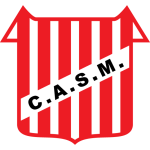 San Martin Tucuman
San Martin Tucuman
|
10 | 6 | 1 | 3 | 13 | 5 | 8 | 19 |
| 2 |
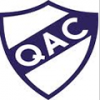 Quilmes
Quilmes
|
9 | 5 | 4 | 0 | 10 | 2 | 8 | 16 |
| 3 |
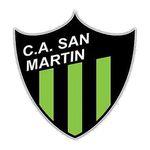 San Martin S.J.
San Martin S.J.
|
10 | 4 | 4 | 2 | 10 | 9 | 1 | 16 |
| 4 |
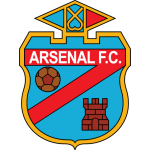 Arsenal Sarandi
Arsenal Sarandi
|
10 | 4 | 3 | 3 | 10 | 9 | 1 | 15 |
| 5 |
 All Boys
All Boys
|
9 | 3 | 5 | 1 | 7 | 5 | 2 | 14 |
| 6 |
 Agropecuario
Agropecuario
|
9 | 3 | 4 | 2 | 12 | 10 | 2 | 13 |
| 7 |
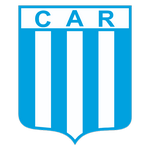 Racing Cordoba
Racing Cordoba
|
9 | 3 | 4 | 2 | 8 | 7 | 1 | 13 |
| 8 |
 Alvarado
Alvarado
|
9 | 3 | 4 | 2 | 8 | 7 | 1 | 13 |
| 9 |
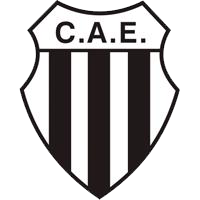 CA Estudiantes
CA Estudiantes
|
9 | 3 | 4 | 2 | 5 | 5 | 0 | 13 |
| 10 |
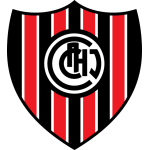 Chacarita Juniors
Chacarita Juniors
|
10 | 3 | 3 | 4 | 9 | 11 | -2 | 12 |
| 11 |
 San Miguel
San Miguel
|
9 | 1 | 7 | 1 | 5 | 5 | 0 | 10 |
| 12 |
 Tristan Suarez
Tristan Suarez
|
9 | 2 | 4 | 3 | 10 | 11 | -1 | 10 |
| 13 |
 Guillermo Brown
Guillermo Brown
|
9 | 2 | 4 | 3 | 8 | 9 | -1 | 10 |
| 14 |
 Talleres Remedios
Talleres Remedios
|
9 | 2 | 4 | 3 | 6 | 7 | -1 | 10 |
| 15 |
 Gimnasia Jujuy
Gimnasia Jujuy
|
9 | 3 | 1 | 5 | 7 | 9 | -2 | 10 |
| 16 |
 Ferro Carril Oeste
Ferro Carril Oeste
|
10 | 2 | 4 | 4 | 12 | 15 | -3 | 10 |
| 17 |
 Patronato
Patronato
|
10 | 2 | 4 | 4 | 6 | 12 | -6 | 10 |
| 18 |
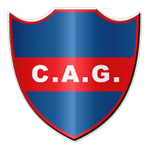 Club Atlético Güemes
Club Atlético Güemes
|
9 | 1 | 6 | 2 | 5 | 6 | -1 | 9 |
| 19 |
 Deportivo Maipu
Deportivo Maipu
|
9 | 2 | 1 | 6 | 7 | 15 | -8 | 7 |
About Alvarado
Club Atlético Alvarado is a renowned football club based in Mar del Plata, Argentina. The club was founded on June 21, 1928, by a group of friends who were passionate about football. Named after the street where they used to play, the club has grown to become a significant part of Argentina's football landscape.
Alvarado's team colors are red and black, and they are affectionately known as "El Torito" (The Little Bull) by their fans. The club's home ground is the Estadio José María Minella, a stadium with a seating capacity of 35,354 spectators, which is also the largest in Mar del Plata.
Throughout its history, Alvarado has competed in various divisions of Argentine football. The club has spent most of its history in the Torneo Argentino A and B, the third and fourth tiers of Argentine football. However, in 2019, Alvarado achieved promotion to the Primera B Nacional, the second division of Argentine football, after winning the Torneo Federal A. This marked a significant milestone in the club's history, as it was their first time reaching the second tier of Argentine football.
Alvarado has a dedicated fan base that passionately supports the team through thick and thin. The club's supporters are known for their vibrant displays and loud chants, creating an electrifying atmosphere during matches. Despite not having won any major national titles, the club has a rich history and a strong community spirit, which has helped it to survive and thrive.
The club also has a youth academy that has produced several players who have gone on to play professional football. Alvarado takes pride in nurturing local talent and providing opportunities for young players to develop their skills.
Off the pitch, Alvarado is deeply involved in the local community. The club organizes various social and community activities, including football clinics for children, charity events, and community outreach programs. These initiatives reflect the club's commitment to giving back to the community and using football as a tool for social change.
Over the years, Alvarado has faced numerous challenges, including financial difficulties and relegation battles. However, the club has always shown resilience and determination, bouncing back stronger from each setback. The club's journey reflects the spirit of its motto, "Luchamos hasta el final" (We fight until the end).
In conclusion, Club Atlético Alvarado is more than just a football club. It is a symbol of community spirit and resilience, a beacon of hope for its fans, and a source of pride for the city of Mar del Plata. Despite its ups and downs, Alvarado continues to inspire its fans with its passion for football and its commitment to the community. The club's rich history and vibrant culture make it a unique and cherished part of Argentine football.















